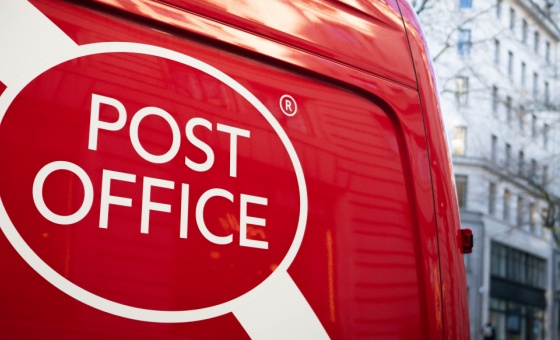This is the last article you can read this month
You can read more article this month
You can read more articles this month
Sorry your limit is up for this month
Reset on:
Please help support the Morning Star by subscribing here
MY NAME is Susana Benavides and I currently work with United Voices of the World (UVW), a small trade union that was initially founded to represent low-paid migrant workers in London.
Originally from Ecuador, I came to Britain via Spain and began working as a cleaner. Eventually I found myself working in Top Shop in central London — experiencing bullying and a poverty wage for long hours spent working on behalf of a huge clothing chain owned by a multimillionaire.
In any organisation, the cleaner is always at the bottom of the pile; ignored, forgotten, working silently after everyone else has gone home. However, I came to hear of a union that specifically spoke to people like me, which sought to give cleaners and migrant workers a voice and that would shine a light on a side of work in London that’s often neglected. My colleagues and I joined UVW and launched a campaign for a living wage, one that eventually led to my unfair dismissal for which my employer was later fined in court.
Our own campaign was one of many similar actions that erupted across the city. Thousands of cleaners, security guards, porters and other facilities workers joined UVW as word of mouth spread amongst the Latin American, African and Caribbean communities about the union that would support them to tackle bad bosses head on.
There was also a social aspect to UVW that made it hugely popular. Union assemblies were followed by parties where people ate and danced and caught up with friends; something more than welcome after a 60-hour week of cleaning.
Sometimes people came to social events and left as signed-up members determined to organise their colleagues. Socialising, in fact, was always a big part of UVW’s organising. Workers coming together and having fun created a sense of trust, belonging and community that we all knew would translate into practical solidarity when we needed it to fight and beat our abusive and exploitative bosses.
A key strategy of UVW was to have large, noisy and disruptive pickets. If a business wanted to engage in exploitation then we would make sure that everyone passing by their building knew about it. Our pickets often had a carnival atmosphere, but they caused huge embarrassment to their targets and we were nearly always successful.
We were joined on these pickets by many well-wishers and various left-wing activists. We were flattered and heartened to be joined by people giving up their time to help cleaners on strike. Soon, it also became obvious that we provided a focus for many of these activists — a concrete and real initiative in people power that was new and dynamic, something which left circles were clearly attracted to.
As the years went on, however, a sort of transition began to occur. It became clear that many of these activists were not just content to play a supportive role for pickets and workers on strike. Many joined the union and began to take up roles within it.
Over time this developed into them forming various formal groups and then official sectors within the union, under the banner of various types of work usually associated with professions, academia and the arts.
While we low-paid migrant workers usually bonded together based on our shared interests in building community and taking action in our workplaces and challenging employers via strikes and protests, these new groups more often resembled friendships, people with a shared academic interests or informal political networks, rather than workers in struggle.
UVW meetings were always long and animated, but are now often tedious and fractious. The focus has increasingly shifted from the tactics and strategies of practical organising and movement building, to circular discussions about various left-wing concepts or “radical” ideas and initiatives with all the alienating jargon that goes with that.
Issues are approached and discussed in an academic or abstract manner and to be honest, my colleagues and I are sometimes patronised, made to feel stupid or just plain ignored even in relation to matters that directly affect us more or where we have the most experience. And on occasions when we have spoken up, our passionate Latin spirit is often twisted into “micro-aggressions” by the “professionals.”
We could often spend hours (literally) engaged in torturous self-scrutiny. This kind of self-scrutiny takes place instead of trying to establish common ground which we could build on towards action. The fun and energy has gone out of meetings and assemblies. Workers are often left confused and angry after these events, leaving feeling like strangers in their own union. Nobody working long hours on low wages trying to provide for a family has the time or energy for this sort of dynamic.
The initial UVW structure was headed by organisers and open members’ meetings. Then an executive committee was formed. As various new groups of workers from different sectors joined (some significant in size, some very small), each one wanted representation on the committee.
This led to a frankly farcical situation whereby the committee of a union that is around 80 per cent migrant, ethnic minority low-paid manual workers became dominated by largely British-born graduate types, most of whom worked in professions.
The cornerstone of UVW’s approach was organising workers to use their collective strength to challenge exploitative bosses, but now a huge amount of time was devoted to discussing the long list of initiatives or demands from representatives of different sectors, which have nothing to do with how we can better build more campaigns.
It’s worth noting that there have been around 50 campaigns in UVW, nearly all of which have been undertaken by migrant workers and none of which have emerged from the activist circles which have affiliated to the union. Some of these campaigns have been seen by the rest of the labour movement as examples for them to follow.
Without these campaigns UVW would never have been of any interest to any workers let alone activists. Despite this, it’s the latter who seem to do most of the talking about what should be done and how we should structure and organise ourselves.
There is now a lot of tension in UVW, which I see as some sort of class or culture divide. Many members believe that one of the only unions in Britain that was geared specifically toward them as low-paid, migrant workers has now effectively been diverted away from them into a wider left-wing network increasingly dominated by people that don’t understand them or their immediate material concerns or needs.
Manual workers are asking why these activists need to join our union and attempt to impose various political projects and concepts . There is more than a touch of self-aggrandisement at times, while we are trying to build effective campaigns, some activists are trying to build credentials within their leftist networks.
Are we saying we want to be left in total isolation and are hostile or indifferent to people who aren’t exactly like us? Of course not. We are all individuals with different aspects to ourselves and we appreciate and welcome all support and solidarity. However, we need to organise and win and we need to do it our way, and we need UVW for that.
What makes UVW so special is that it was an organic creation of highly exploited working-class migrant people in which we devised our own organising culture, structure and methodology to empower ourselves.
We grew from a few workers meeting in parks and cafes to a union thousands strong and growing rapidly and winning demands that few thought were possible. When we organise or strike it is out of sheer necessity; to pay our rent, to feed our children and to help dependants in our home countries.
We fight for a dignified job and to be able to live in dignity. This is not a scene or a subculture for us. This is our home, our community, our family. We have too much to lose.
So we have a request and it is a simple one: when you see us marching, march alongside us — not in front of us.
Susana Benavides is an organiser and rep for the UVW — uvwunion.org.uk.











